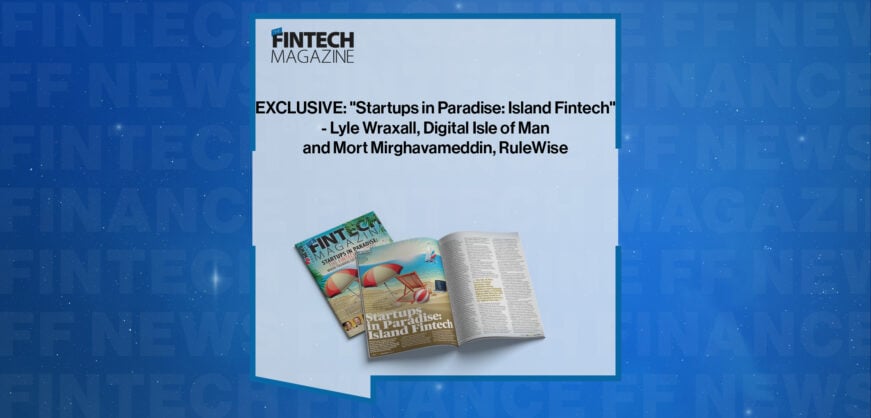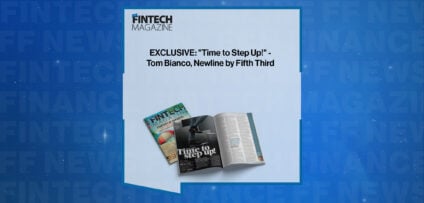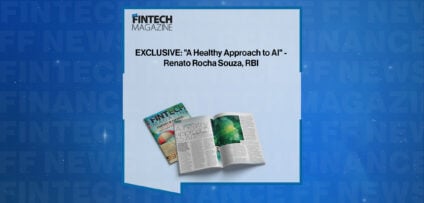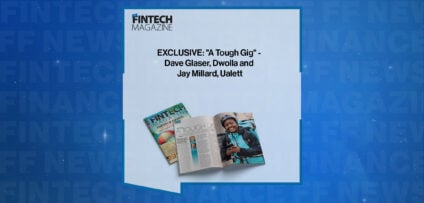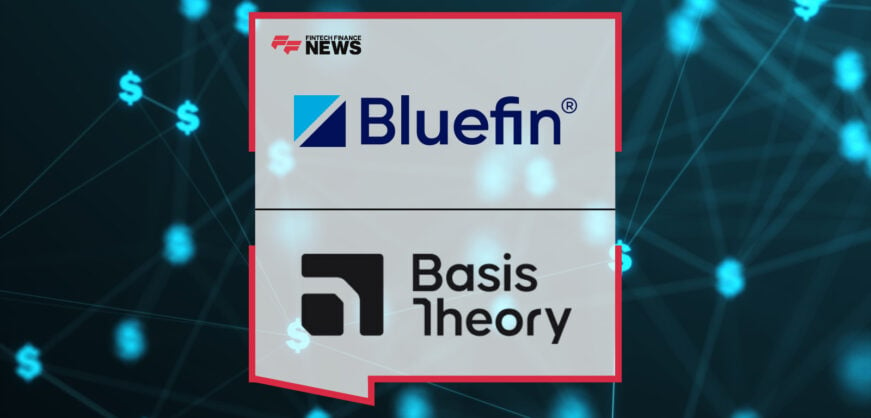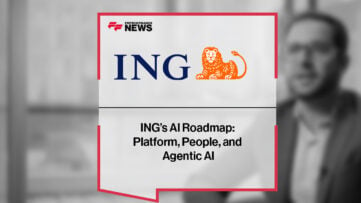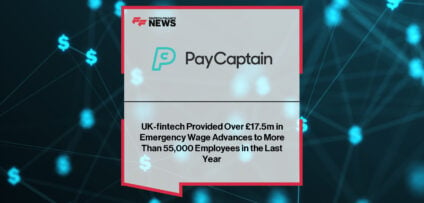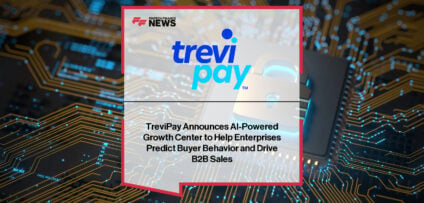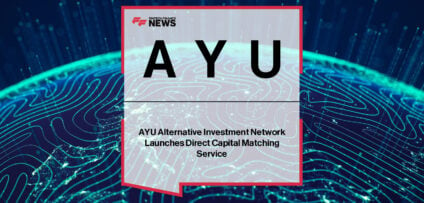Breaking News

EXCLUSIVE: “‘Shadow Boxing'” – Rajul Sood, Acuity Knowledge Partners in ‘The Fintech Magazine’
Banks want to win back the portfolio of SME loans they’ve lost to the private credit market. Acuity Knowledge Partners is helping them achieve it with AI and cross-sector experience
Businesses – particularly small and medium-sized ones – have had it tough sourcing the credit they need to succeed. Hobbled by post-credit crunch regulatory tightening and cumbersome legacy systems, mainstream institutions have struggled to service them.
Into that void has stepped non-bank private financing – once known as ‘shadow lenders’ – offering quicker execution and fewer regulatory hold-ups, with tailored loan structures to fit complex or high-risk transactions and providing competitive returns for investors in low-yield markets. They’ve become such a significant market force that, according to Bosurpass $1.7trillion worldwide in 2025, up from just $500billion a decade ago, with major global players like Apollo Global Management, Blackstone Credit, Ares Capital, and KKR, amassing multi-billion-dollar portfolios, rivalling the lending volumes of regional banks.
But now, technology is giving those banks a way to retake the SME loan territory, and solutions provider Acuity Knowledge Partners is working with them across the lending value chain to help achieve it. Acuity brings the team’s deep knowledge of processes and systems in both bank lending and private markets to bear on all asset classes and portfolios and is now augmenting that expertise with proprietary AI and genAI-driven technology.
“Private credit has been able to challenge the monopolistic status of traditional banks and add competition by offering bespoke deal structures, superior rates and faster credit processing,” explains Rajul Sood, Acuity’s MD and Global Head of Banking. “However, banks are now showing real resilience in evolving strategically to compete with shadow lenders. Many are cautiously entering private markets through partnerships with asset managers, establishing regulatory structures that allow them limited strategic participation. For example, JP Morgan working with Apollo Finance, and PNC Bank with TCW Group.”
Some are also investing in in-house credit platforms; collaborations with private equity platforms; hiring new talent with credit market experience; and entering new markets. AI, and particularly genAI, is an enabler of this re-entry. A recent EY blog, How Artificial Intelligence Is Reshaping The Financial Services Industry, says that ‘the strategic deployment of genAI is much more than a trend; it is a comprehensive reimagining of operations, product development and risk management’.
It has specific applications, it says, in fostering innovation, streamlining operations, enhancing customer service, boosting risk management and reshaping capital markets. It adds that organisations are utilising models like GPT to deliver ‘personal services and novel solutions while streamlining mundane tasks’. It’s what Sood refers to as a shift from ‘run the bank to change the bank’.
“Most banks we work with are aiming for complete and large-scale digital transformation, and 65 per cent have adopted genAI through either fintech partnerships or strategic partnerships with us,” says Sood. “The first priority for banks
s to improve their loan management.”
Acuity Knowledge Partners leverages its knowledge of popular loan management systems, such as nCino, Moody’s, and Loan IQ, to help clients short-circuit adoption, reducing the time taken to hire, train, and onboard software and staff.
“A lot of banks are adopting nCino, for example, to improve their legacy systems for a better, hyper-personalised customer experience,” says Sood.“Then it’s about implementing generative or agentic AI. Banks are taking a proof-of-concept approach over three or six months to evaluate the benefits before looking at large-scale deployment.
“They’re also migrating to Cloud-based systems to modernise their core platforms for better agility, resilience and cost-efficiency. Given the pace at which technology is moving, every bank has a large list of technology, modernisation and professionalisation priorities. To achieve them, they’re looking at strategic partnerships to either build something in-house or buy something off the shelf that can give them immediate returns, or a mixture of both.
“Some banks, like Morgan Stanley, are investing in technology startups which started with proofs of concepts but have delivered significant benefits in domains like corporate lending and are accelerating innovation.”
One of AI’s key applications is enhancing banks’ ability to mine and analyse often unstructured data at speed, improving and accelerating their loan decision-making.
“Banks can pretty much match the responsiveness and agility of the non-bank lenders by using centralised teams… with AI accelerating underwriting and improving overall risk governance”
“What gets providers stuck is their legacy systems not speaking to each other and non-standardised data,” says Sood. “Technology doesn’t understand anything that is not standard, and banks have an inherent problem of taking a non-standard approach, with bespoke processes and micro services, so it’s very important they overhaul these systems.”
A story of growth
Established 23 years ago, Acuity boasts a 7,000-strong specialist financial sector team, 1,000 of whom are technology specialists and programmers. That depth of knowledge goes to the very top. Its Chief Operating Officer, Jon O’Donnell, joined the company last year from IBM where he led the EMEA Business and Technology Consulting Divisions of up to 15,000 practitioners with $3billion turnover. The company, which is currently bringing bespoke research, analytics, and technology solutions to 650 financial services businesses worldwide, spanning investment banking, asset management, and private equity, has experienced its own growth spurt in the past 12 months. It’s added 100 new clients and expanded its presence to include the US, UK, Germany, Switzerland, Costa Rica, Sri Lanka, India, China, Australia and the UAE. And it is investing in in-house AI capabilities to support the growing need among that customer base.
In July 2024, Acuity bought European AI and machine learning provider PPA Group, with expertise in structuring global financial and ESG data for commercial lending. In April, it launched its own scalable agentic AI platform, Agent Fleet, combining ‘domain-trained Al agents with Acuity’s deep sector expertise and robust data infrastructure’ to enable firms to ‘scale their businesses and improve decision-making and efficiency without expanding headcount’.
Its complementary digital tool RFP Pulse uses genAI to provide semantic search and a structured content repository to help asset and wealth managers transform how they handle requests for proposals (RFPs) and due diligence questionnaires (DDQs), boasting 25-30 per cent efficiency gains among clients that have introduced it so far.
Acuity’s new credit report writing and analysis tool, Credit Pulse, automates and speeds up credit report creation, and it has just partnered with fintech Databricks to provide Agent Fleet with better data retrieval and analytics, enabling firms to more effectively mine their data at scale.
“Banks can pretty much match the responsiveness and agility of the non-bank lenders by using centralised teams in cost-effective locations, giving them the time advantage by avoiding duplication, with AI and automation accelerating underwriting and improving overall risk governance,” says Sood. “Embracing these things and expanding into regional markets like India and Southeast Asia is giving them an equal and opposite competitiveness in the market.”
Change on such a dramatic scale is not without its challenges, however, particularly when it comes to balancing rapid technological advances with the role of human workforces.
“Innovation is moving fast, people arecoming with a lot of new creative ideas, but if that change is not communicated from the top and implemented across an organisation, it creates resistance to adopting something new, and the biggest initiatives fail,” says Sood.
She doesn’t see it as a battle for survival between human and machine.
“AI is at a tipping point, and it is important to think about integrating tech-led efficiencies with human judgment, rather than balancing the two, to make things simpler and cheaper over time. Organisations have to consider how they can achieve those goals in the best way, because their internal processes don’t change, the people and technology do.
“While technology does a brilliant job with standardised data sets and structured data queries, human judgment becomes extremely important when the work gets more bespoke.
“One interesting concept is that of human on the loop (HOTL), as opposed to human in the loop (HITL) models. HOTL is ideal for more low-risk, high-volume reversible tasks. Here, automation can operate independently, with humans monitoring, intervening or overriding decisions if necessary – things like customer relationship management integration, KYC processing and real-time fraud alerts.
“By contrast, HITL is essential for high-stakes, ethically sensitive, heavily regulated and bespoke domains, such as loan approvals, anti-money laundering, investment advisory and so on. Here, human judgement is
central to ensure fairness, empathy and compliance. AI can analyse the data and generate a recommendation, but the final decision must be human.”
Adopting such significant change often requires a workforce rethink.
“Reskilling is a top priority, as is a focus on organisational culture,” says Sood. “Many early AI adopters with a change mindset are providing experiential learning to let people feel how it can empower them. Big banks like Morgan Stanley and Bank of America have developed their own genAI tools to empower employees. At Acuity, we have genAI training programmes and an AI community for excellence – an experiential and collaborative platform, innovation lab and service delivery programme that encourages everyone to innovate.”
This article was published in The Fintech Magazine Issue #36, Page 42-43
People In This Post
Companies In This Post
- Bluefin and Basis Theory Partner to Enable Unified Tokenization Across Digital and In-Person Payments Read more
- Invest Bank and AUTON8 Build Partnership to Drive Digital Resilience and Banking Agility Read more
- ING’s AI Roadmap: Platform, People, and Agentic AI Read more
- UK-fintech Provided Over £17.5m in Emergency Wage Advances to More Than 55,000 Employees in the Last Year Read more
- TreviPay Announces AI-Powered Growth Center to Help Enterprises Predict Buyer Behavior and Drive B2B Sales Read more





